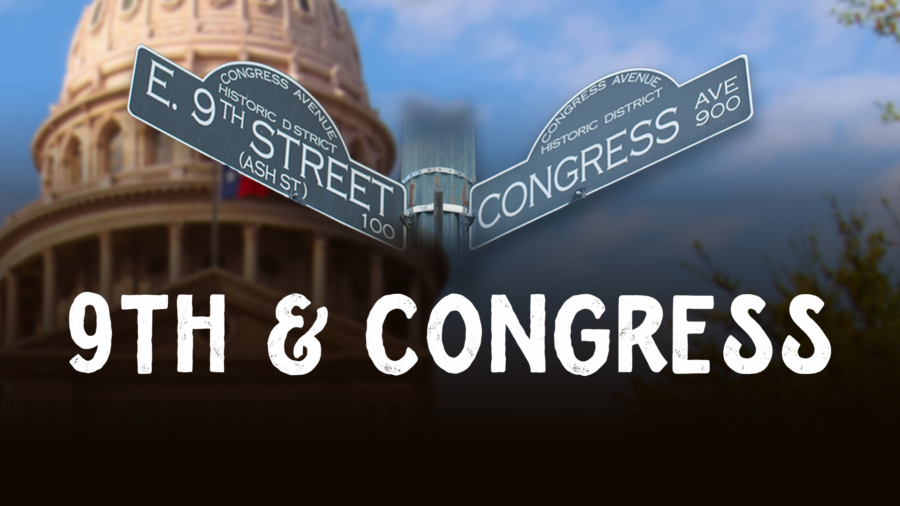It makes absolutely no sense for the media to be in charge of political debates in Texas or anywhere else. They don’t even pretend to be neutral players anymore. They are on the liberal Democrat side.
Which makes it all the more telling, now that the only Texas gubernatorial debate is over, that almost none of the media’s post-debate analysts named Beto O’Rourke the winner. What is amusing is that media analysts can’t seem to understand how, after literally years of biased and dishonest coverage of Texas conservative leadership in general and Gov. Greg Abbott in particular, O’Rourke managed to lose a debate against a man they demonize and misrepresent every day.
With the media in charge, the debate questions on Friday night all leaned in O’Rourke’s favor. There were no questions about the Texas energy policy and how O’Rourke’s support for the Green New Deal would cost millions of jobs and devastate the Texas oil and gas industry.
There were also no questions about parental rights and school choice which Abbott and a majority of Texans support and O’Rourke opposes. Instead, the media’s education questions were focused on the issues teachers’ unions care about—more money for schools and more pay for teachers and retirees. Student outcomes took a back seat to whether the New York City mayor had actually contacted Abbott’s office about busing migrants there.
And, of course, they didn’t ask O’Rourke to define what a woman is or if he thinks boys should be allowed to play girl’s sports.
Still, O’Rourke’s prospects seemed good going into the debate. Polls show 54% of Texans think the state is going in the wrong direction. Texas has had a very difficult couple years, which include the pandemic, a horrifying mass shooting followed by an inexplicable failure to respond by law enforcement, a deadly freeze that paralyzed us and a Supreme Court decision on abortion that has divided Texans.
O’Rourke clearly went into the debate thinking he would blame Greg Abbott for all that. Using his entitled, rich kid persona, he ignored the rules and launched flailing attacks that repeatedly fell flat. The old suggestions by a previously star-struck media that O’Rourke is, somehow, the reincarnation of Bobby Kennedy are laughable after his debate performance.
O’Rourke attacks repeatedly noted that Abbott has been in charge for the last eight years—he clearly thought it was a killer punch.
But he doesn’t understand Texans. The Texas Public Policy Foundation conducted focus groups last year asking Texans across the state what they believe about the Lone Star State. We learned that Texans, regardless of race or ethnicity and even most Democrats, are proud of being Texans because, they said, Texas is a state that does things right.
They listed things like the state’s low cost of living, no income tax, available jobs and reasonable regulations—all results of conservative pro-Texas policies moved forward by Abbott.
No recent pollster has asked Texans if they believe the last eight years would have been better if Democrats were in charge, but if they did, I am confident the answer would be a resounding no. Right next to the right track/wrong track number on most polling results is the disapproval rating for Democrat President Joe Biden, which stands at close to 60% in Texas. Only 37% of Texans approve of his performance and even members of his own party don’t want him to run again. At the same time, a majority of Texans approve of Abbott.
O’Rourke missed the fact that while Texans believe the state is going in the wrong direction, they don’t blame Abbott. Instead, polls have shown again and again, that Texans’ most urgent concern is the crisis at the border and the 2.1 million people who have crossed illegally since President Biden has been in office. Texans support Abbott’s border policies.
A basic rule of politics is to never believe your own press, but O’Rourke doesn’t seem to realize that virtually all the Texas mainstream media is his press. That’s probably why he misjudged his rude and condescending attacks on the governor and crossed the line of good Texas manners. He thought he could badmouth Abbott because he thinks Texans believe the daily mainstream media headlines screaming that Texas is a backward state whose conservative policies have left it in shambles. But most Texans don’t buy that. It doesn’t ring true with the reality of their lives.
Republicans finally took control of all three branches of Texas government in 2003, and now, after a generation of reversing the liberal policies of high taxes, intrusive regulation and trial-lawyer packed courts, conservative principles are part of the Texas DNA, right next to liberty and freedom.
If someone is going to overthrow the state’s top conservative leader, he or she will need to be a genuine Texan who understands that the Lone Star State became the country’s top job creator and the top destination for Americans moving from other states because of conservative policies that have rebuilt our state after almost 100 years of Democrat rule.
O’Rourke showed he doesn’t understand that hard-working Texans know how the economy works because they can see the difference in Texas and blue states around the country. Otherwise, he wouldn’t be putting a higher statewide minimum wage at the top of his platform. Texas voters would never support a plan that would kill both jobs and businesses.
The media is saying that Abbott stacked the deck by only agreeing to one debate, but Texans saw all they needed to see on Friday night. O’Rourke demonstrated he’s not in tune with the priorities Texans care about. Hopefully, we are seeing his last run for public office.



